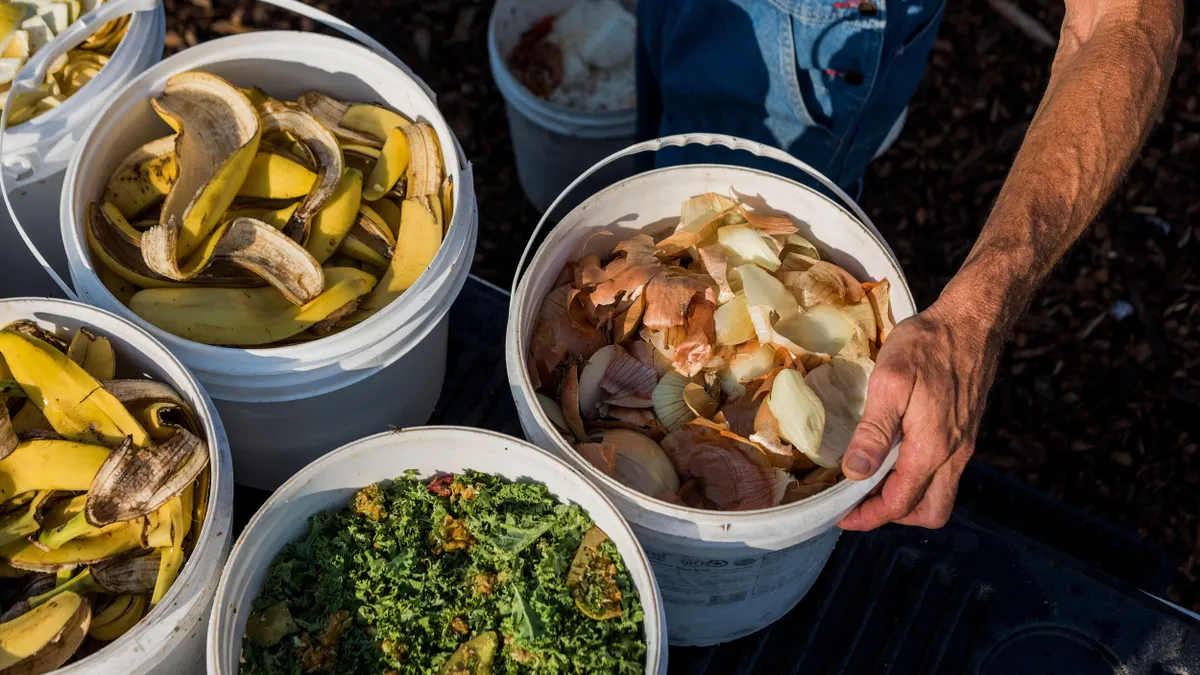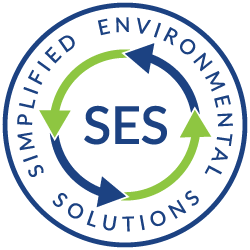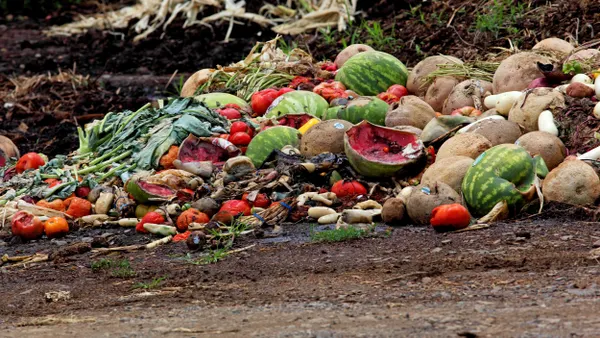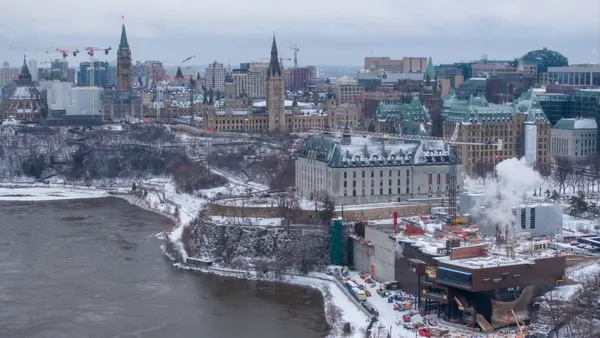Dive Brief:
- The Institute for Local Self-Reliance announced Monday that it's awarding $10,000 grants to 37 recipients through its Composting for Community Mini-Grant Program. Now in its second year, the program funds food scrap microhauling, compost infrastructure, education and related activities.
- The organization identified recipients in five states, including community gardens, farms, schools, tribal communities and nonprofit organizations.
- ILSR’s commitment this year is more than double what it provided through the program in 2024, fueled by environmental organization 11th Hour Racing and an anonymous donor that backed the program's New York City recipients.
Dive Insight:
The announcement comes as demand for organics recycling infrastructure in the Northeast has increased amid pressure to preserve limited disposal capacity.
Funding for food waste solutions is up in 2025 compared to the prior year, with $204 million in investments announced so far this year, according to food waste solutions nonprofit ReFed's capital tracker. That funding has largely come from venture capital backers, although Pennsylvania announced a $130,000 grant to Ecotone Renewables in February. The state of Connecticut also recently provided small grants to support organics recycling, funding both food scrap collections programs and new composting infrastructure.
At the same time, northeastern states have struggled to identify adequate capacity for waste disposal, leading to waste exports. Pressure continues to rise as communities near landfills and incinerators alike look to halt expansions or shut down facilities.
As a result, companies or local programs able to remove organic material from the waste stream have taken on new importance for policymakers. Composters also tout the soil benefits of compost and the greenhouse gas emission reductions that come from removing organic material from disposal.
ILSR focuses on smaller composters that integrate with their community to provide local organic waste solutions. The organization’s grantees this year include a community composting hub run by CERO Cooperative in Boston, an oyster shell recycling program in Maine and a school compost program in Connecticut. ILSR also placed a focus on grantees run by and serving Black and Indigenous people, providing financial support for a new composting system for the Mashpee Wampanoag Tribe and expanding the Somali Bantu Community Association's composting activities in Lewiston, Maine.
Through an anonymous donation, ILSR was able to support 23 organics recycling organizations in New York City as part of the overall funding round. The recipients include GreenFeen Organix, a Bronx-based organization that will create an educational vlogging series, and the City College of New York, which will create an indoor composting system.
Earth Matter NY, which runs a composting facility in the city, plans to use its grant to explore ways for nonprofits to divert and compost their food scraps. Marisa DeDominicis, Earth Matter’s executive director, said the grant helps ensure the nonprofit’s funding stream remains diverse and allows it to explore a niche that can’t always be served by the city’s existing organics recycling programs.
“We are looking to understand how the success of the city program, of curbside, is making it so we are able to now pivot and help other groups divert the food scraps so that the diversion rates in New York City go up,” DeDominicis told Waste Dive. “The funding from ISLR helps us look at what that will mean.”














